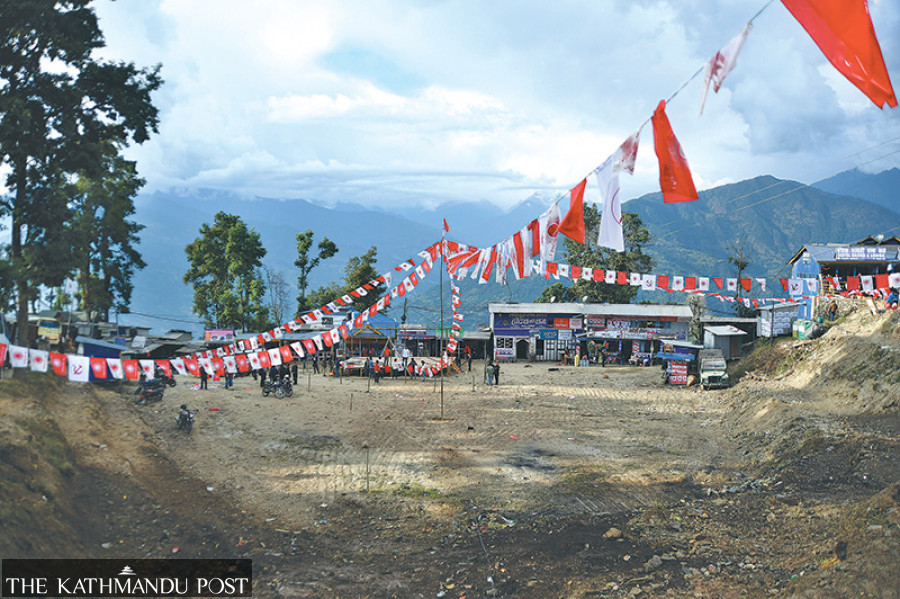National
Local governments plan medicine scholarships to tackle doctor shortage in remote districts
Local units in Jumla, Jajarkot and Taplejung have launched programmes to produce doctors.
Binod Ghimire
Following an increase in coronavirus cases, a Covid-19 hospital was established in Patarasi Rural Municipality in Jumla district last year. The hospital came as a huge relief to the people of the remote rural municipality which didn’t have any health facilities other than a health post.
However, the hospital couldn't function effectively due to the lack of adequate number of health workers, including doctors. Now the rural municipality has come up with a solution to the problem.
The executive council meeting of the rural municipality last month decided to fund the MBBS studies of one local student every year. Upon graduation, the beneficiary will need to serve at the local hospital for a few years, said Lachhiman Bohora, chairperson of the rural municipality.
“The pandemic has taught us a lesson that we direly need manpower for our health infrastructure,” Bohora told the Post. “So far, not a single person from our rural municipality has become a doctor.”
He said the rural municipality will bear the entire cost of MBBS studies of the students.
In Taplejung district, the Primary Health Centre at Sirijunga Rural Municipality is supposed to be manned by an MBBS doctor. However, no doctors deputed by the federal government have served there for more than a few months. In 2019, the health centre was without a doctor for seven months. Despite their several requests to the Ministry of Health and Population, no doctor showed up at the health centre.
“Then we hired a doctor by paying Rs 50,000 more than the government pay scale as the federal government was reluctant to depute one,” Tika Ram Gurung, chairperson of the rural municipality, told the Post. “However, we are not sure how long he will stay.” In December last year, Prime Minister KP Sharma Oli laid the foundations for 309 hospitals across the country. This includes a 10-bed hospital at Sirijunga.
Though the construction is set to begin shortly, officials at the rural municipality doubt that the government will supply any doctor to the hospital. So the rural municipality decided to sponsor a student from the rural municipality for his/her MBBS studies every year. In return s/he will have to work at the local hospital for two years.
“We believe our initiative will ensure that we have no dearth of doctors at our hospital,” said Gurung. “Covid-19 pandemic has taught a lesson that every local government should be equipped to deal with such a crisis in the future.”
The Chandannath Municipality in Jumla and Kushe Rural Municipality in Jajarkot are the other local governments that have followed suit.
According to Hom Kumar Shrestha, chairperson of the National Association of Rural Municipalities in Nepal, Covid-19 pandemic has exposed the country’s poor health system and prompted the local governments to take initiatives to better their health system without federal funding.
Along with the funding for MBBS studies, the local governments have increased their budget for improving their health facilities. “Improvement of health services is the priority of the majority of the local governments,” he told the Post.
Health experts have lauded the local units’ decision to fund MBBS studies of local students. They say local governments should also work to enhance the quality of education being imparted at schools.
“Students can pursue MBBS studies only after passing highly competitive entrance tests. So the local units need to focus on bolstering the educational base of their students so that they can pursue MBBS,” Dr GD Thakur, former joint secretary at the Ministry of Health of Population, told the Post. “It is also the moral responsibility of such MBBS graduates to pay back by serving in their local units.”
Every year over 200 students, selected through highly competitive screening tests, get the opportunity to study the MBBS degree on full scholarship. In return, they need to serve in rural Nepal for two years. However, many of them do not fulfil this requirement and either move abroad or work in Kathmandu and other cities.




 9.83°C Kathmandu
9.83°C Kathmandu














